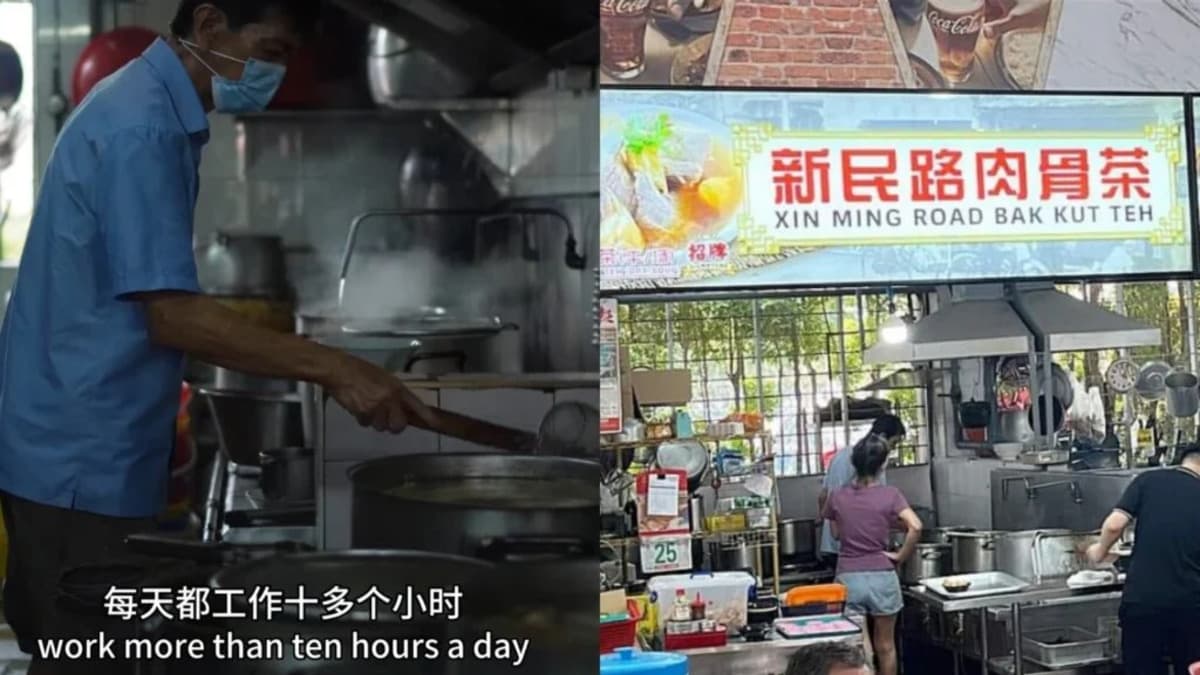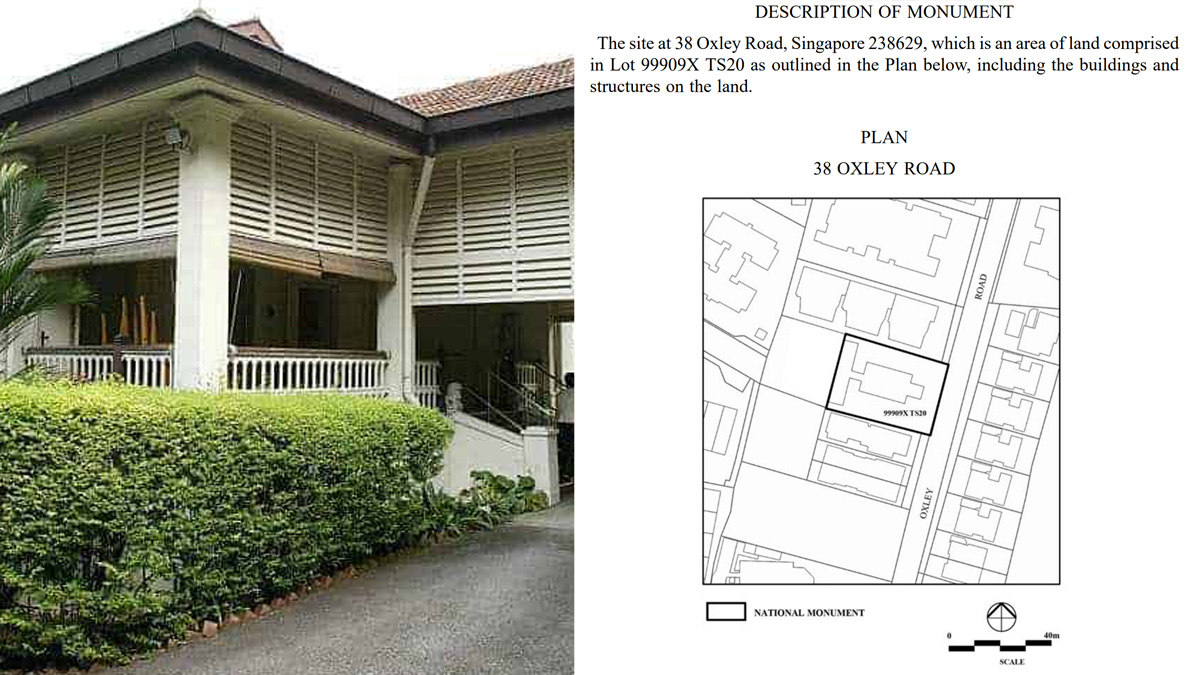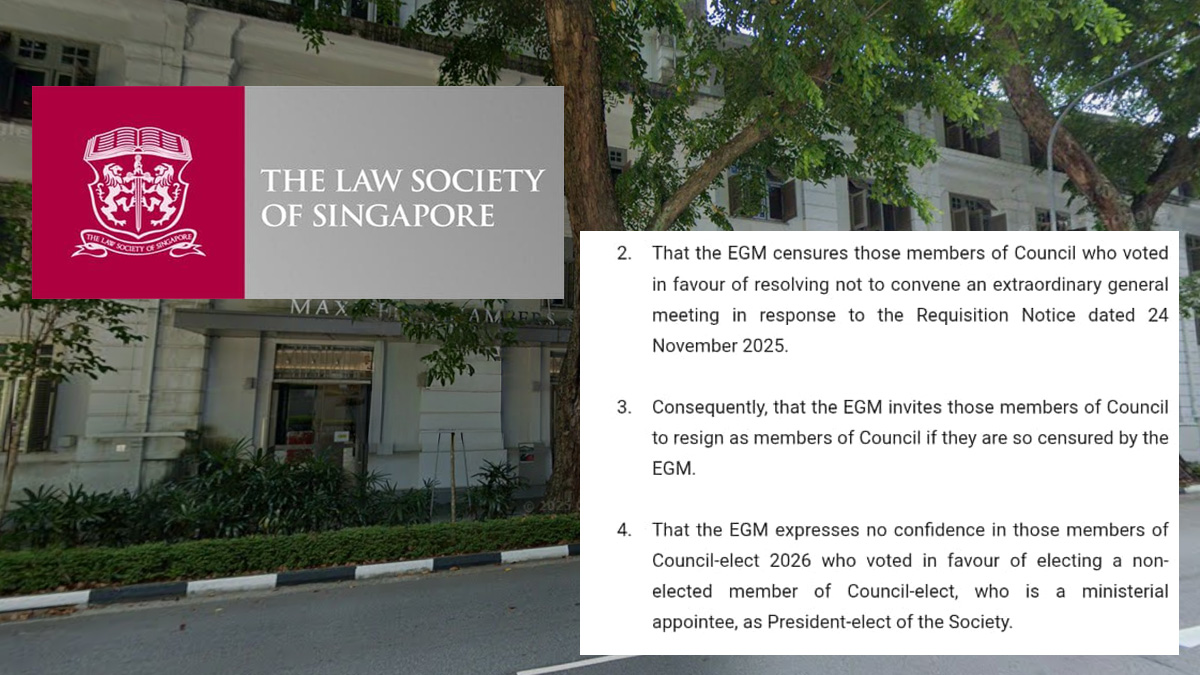Xin Ming Road Bak Kut Teh co-owner Ang Yong Seh dies at 65 after years of overwork to repay debts
Bak kut teh stall co-owner Ang Yong Seh has died at 65 after working up to 18 hours daily for three years to repay debts exceeding S$100,000. His wife and business partner, Lilian Chua, has since reopened the stall to honour his memory and commitment.

- Ang Yong Seh, co-owner of Xin Ming Road Bak Kut Teh, died at 65 on 10 January 2025 after years of overwork repaying debts from pandemic losses.
- His wife and partner, Lilian Chua, reopened the stall two weeks later, honouring his wish to keep the business alive.
- The couple’s decades-long hawker journey reflects the struggles and resilience of small food businesses in Singapore.
Ang Yong Seh (洪荣生), co-owner of the long-running Xin Ming Road Bak Kut Teh stall, died on 10 January 2025 at the age of 65 after working extreme hours for years to clear business debts.
His wife and business partner, 66-year-old Lilian Chua (蔡菊花), has since reopened the stall, saying she did so to honour her husband’s lifelong dedication to their shared trade.
A relentless struggle through hardship
The stall, located at Kola Food Centre in Sin Ming Industrial Estate, was badly affected by the Covid-19 pandemic.
Monthly operating costs—including S$9,000 in rent and S$4,000 in salaries—far outweighed income when daily takings sometimes fell to as little as S$100.
Losses over three years left the couple with debts exceeding S$100,000.
Determined to repay what they owed, Ang reduced his rest days to just four annually. For three years, he worked from 5am until 11pm almost every day.
Chua told Shin Min Daily News that her husband “only stopped to rest during Chinese New Year.”
His final days
Despite suffering from a prolonged cold in December 2024, Ang refused to stop working until four days before his death.
On 9 January, he complained of difficulty breathing and was rushed to Tan Tock Seng Hospital.
He died the next morning at 5am.
Doctors said he had no chronic illnesses and attributed his death to overwork and exhaustion.
Chua recalled their final exchange. At his bedside, she asked: “How am I supposed to run this stall alone? Can I let it go?”
Unable to speak, Ang held her hand tightly, signalling his wish for her to continue.
A shared life in the hawker trade
Chua has been in the bak kut teh business since she was 19, starting as an assistant at Rong Cheng Bak Kut Teh, owned by her brother-in-law.
Later, she invited Ang to join her in the trade. Together, they opened stalls at locations across Singapore, including West Coast, Clementi, Choa Chu Kang, Tampines, and Jalan Besar.
But with each relocation, often triggered by rent hikes or lease changes, they had to rebuild their customer base from scratch.
Around 18 months ago, they settled at Kola Food Centre in Sin Ming. Business dropped by 40 per cent, but Ang remained determined to persevere.
Holding on through the pandemic
The pandemic proved to be their most difficult challenge.
Despite financial strain, the couple expressed gratitude in 2023 to their coffeeshop landlord, who had helped lighten their burden during the crisis.
“You have to work hard and persevere,” Ang said at the time. “This is my small business with my wife.”
The couple continued to prepare and serve their signature bak kut teh every day, drawing on decades of experience.
A partnership of quiet devotion
Although described by his wife as reserved and inexpressive, Ang showed his care through action.
When Chua injured her shoulders years ago, Ang took on the physically demanding kitchen tasks without complaint.
He had hoped to run the stall for another five years before retiring. He also planned to take Chua to his ancestral hometown in Teochew, China—a trip that never came to pass.
“Even if he didn’t say much, he showed his love through what he did,” Chua said.
Carrying on alone
Following his death, Chua closed the stall briefly for mourning but reopened after two weeks.
She explained: “I knew he would be worried about our business. Continuing it is my way of honouring him.”
Despite her determination, she admitted concerns about the future. “When we moved to Kola Food Centre, business dropped. It still hasn’t recovered. Costs remain very high, and now I’m alone,” she said.
Still, she expressed her intention to keep the stall running: “I can only retire when I really can’t do it anymore. I’ve been making bak kut teh for more than 40 years. It is all I know.”
Broader issues of overwork
Ang’s death has drawn attention to the pressures faced by Singapore’s hawkers, many of whom operate long hours with limited rest to sustain their livelihoods.
Hawker centres remain central to Singapore’s food culture, but rising rents, labour shortages, and disruptions caused by the pandemic have made survival increasingly difficult for small operators.
Experts have previously warned of the health risks of chronic overwork, particularly among older workers in physically demanding trades.
Ang’s case highlights the sacrifices that small business owners often make in order to preserve their livelihoods, even at significant personal cost.
Remembering a hawker’s legacy
Ang and Chua’s journey reflects the resilience and hardship faced by a generation of hawkers who built Singapore’s food culture from scratch.
Though he never achieved financial security, Ang’s dedication to his work and partnership with his wife left a mark on the community of regular customers who continue to visit Xin Ming Road Bak Kut Teh.
For Chua, each day at the stall now carries the weight of both memory and responsibility.
She continues serving bowls of bak kut teh, a dish they perfected over decades together, determined to honour the legacy of her husband’s life and labour.








0 Comments